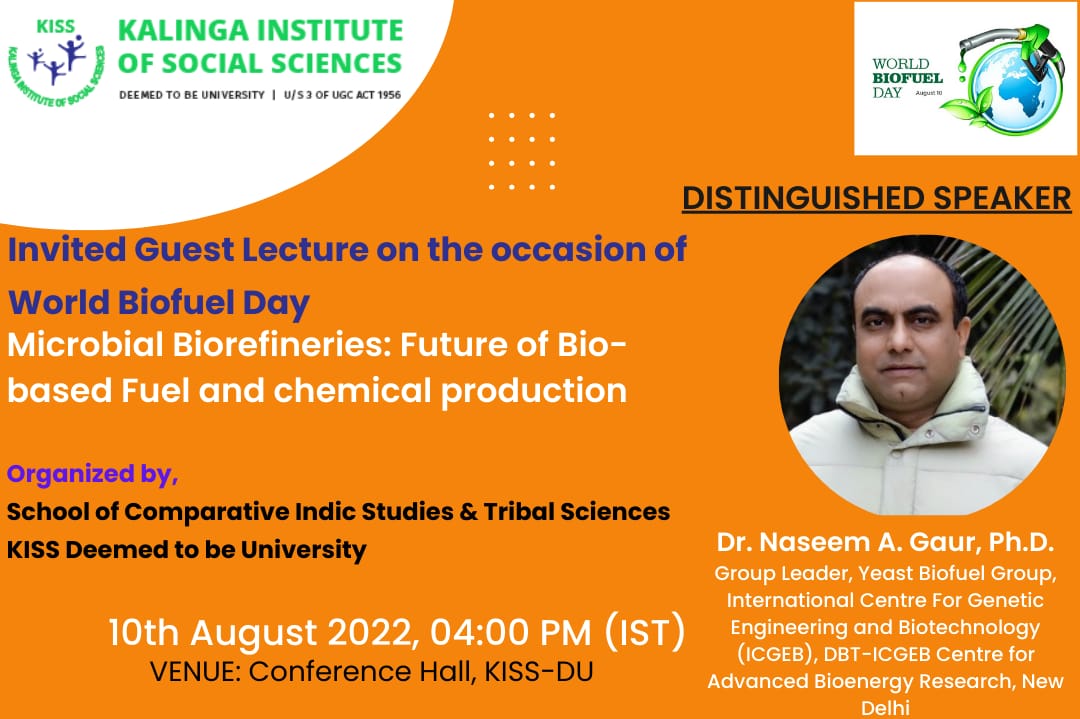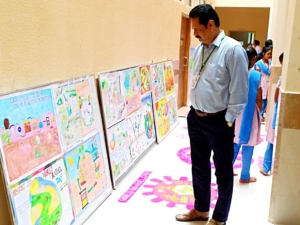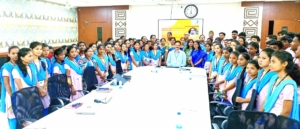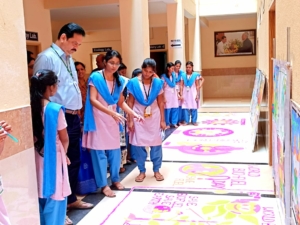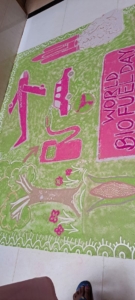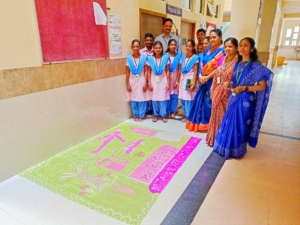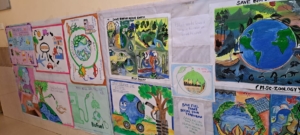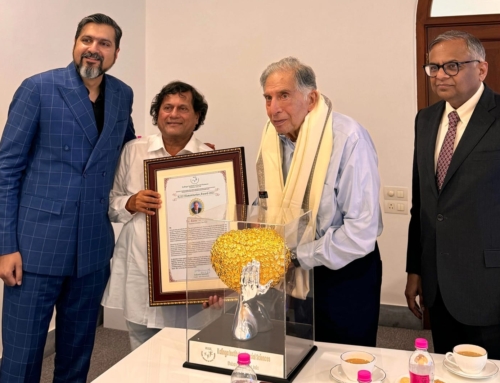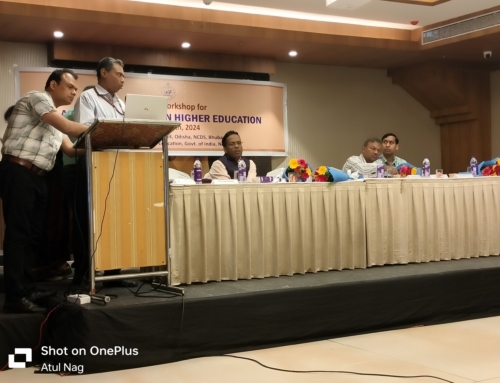The School of Comparative Indic Studies and Tribal Sciences (SCISTS), KISS-DU organized an online lecture on ‘Microbial biorefineries: future of bio-based fuel and chemical production’ on the occasion of World Biofuel Day on 10th August 2022. Dr. Naseem A. Gaur, who leads the Yeast Biofuel Group at the International Centre for Genetic Engineering and Biotechnology in New Delhi delivered the invited lecture.
In his welcome Address, Professor Deepak Kumar Behera, the Vice-Chancellor, of KISS-DU highlighted the need for greater awareness about and importance of non-fossil fuel as well and various other initiatives being encouraged by the government in the biofuel sector. Briefly recalling the landmark experiment by Sir Rudolf Diesel who ran an engine with peanut oil in the year 1893, Professor Behera also lauded the students who celebrated the occasion by with colourful paintings and rangolis.
Dr. Naseem Gaur referred to climate change and the increasing health problems due to air pollution generated from the burning of fossil fuels, which are costly as well as scarce. This in turn has led to a rise in the popularity of biofuels or fuels derived from renewable sources like corn and sugarcane. He explained that the concept of bio-refinery could be an attractive option to convert plant biomass into fuel and chemicals. Recently, their team has developed an integrated bio-refinery model for ethanol, lipids, prebiotics and other value-added products synthesis by utilizing lignocellulosic biomass and genetically modified yeast. This novel concept of integrated yeast bio-refinery for concomitant production of fuels and multiple value-added products with minimum waste generation has great potential to combat climate change and reduce energy import.
Responding to the presentation, Dr. Siba Prasad Adhikary, Emeritus Professor, KISS-DU, referred to similar experiments with Jatropha and algae as biodiesel source that could be a potential source of income source for the indigenous people. He suggested that lignocellulosic biomasses such as phragmites karka, Eicchornia crassipes and other invasive species which threaten our water bodies could also be used for bioethanol production.
The lecture was followed by a Q/A session. Dr. Sweta Arora, Assistant Professor, KISS-DU, SCISTS also shared her thoughts on the topic. Dr. Vimal Kumar Pandey, School of CISTS coordinated the programme and Mrs. Sangeeta Parida, faculty, KISS-DU moderated it.
Dr. Rashmi Mahapatra, Dean, School of CISTS, KISS-DU proposed a Vote of Thanks. All faculty members, research scholar and students of the School actively participated in this informative webinar.

